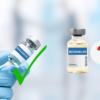Introduction
March is recognized as Colorectal Cancer Awareness Month, offering a vital opportunity to heighten awareness surrounding colorectal cancer, including prevention, early detection, and treatment. Throughout this dedicated month-long campaign, our primary objective is to educate the public on the significance of screening, lifestyle adjustments to mitigate risk, and the profound impact of this prevalent cancer on individuals and communities worldwide.
What Is Colorectal Cancer?
Colorectal cancer, encompassing cancers of the colon, rectum, and anus, typically originates from polyps within these organs. Detecting and removing these polyps can prevent the development of colorectal cancer. Globally, it ranks as the third most prevalent cancer, with nearly 2 million diagnoses in 2020, and is the second leading cause of cancer-related deaths, claiming nearly 1 million lives annually. However, effective screening methods are available to reduce mortality rates associated with this disease.
Various factors influence an individual’s risk of developing colorectal cancer, which also impacts susceptibility to other cancer types. For instance, alcohol consumption contributed to over 160,000 new cases of colorectal cancer in 2020, accounting for 8% of all diagnoses that year. Additionally, alcohol intake heightens the likelihood of developing at least six other types of cancer.
Demographic Trends in Colon Cancer Epidemiology
Colon cancer is the third most common cancer in the U.S., with men and individuals assigned male at birth (AMAB) at slightly higher risk than women and individuals assigned female at birth (AFAB). It disproportionately affects Black individuals. While typically seen in those aged 50 and older, there has been a yearly 1.5% increase in cases among individuals aged 20 to 49 over the past 15 years, though the reasons are unclear.
Recognizing Symptoms of Colorectal Cancer
Colorectal cancer symptoms can vary, emphasizing the importance of early detection. Look out for
- Changes in bowel habits like diarrhea, constipation, or feeling of incomplete emptying.
- Presence of blood in or on the stool, ranging from bright red to dark.
- Stools appear narrower than usual.
- Abdominal discomfort, including gas, bloating, fullness, and cramps.
- Unexplained weight loss.
- Fatigue and weakness.
If any of these symptoms persist, it’s crucial to consult a doctor for further evaluation and potential colorectal cancer screening.
“An ounce of prevention is worth a pound of cure.”
Causes and Risk Factors of Colon Cancer
Colon cancer arises from a complex interplay of genetic predispositions and environmental influences. Approximately 90% of cases stem from environmental factors such as a diet low in fiber and high in fat, along with habits like alcohol consumption and tobacco use. Genetic mutations, whether inherited or acquired, also significantly contribute to the disease’s onset.
Certain inherited syndromes, such as familial adenomatous polyposis (FAP) and Lynch syndrome, heighten the risk of colorectal cancer. Lifestyle choices like obesity, sedentary behavior, smoking, excessive alcohol intake, and specific dietary patterns further increase susceptibility.
Moreover, advancing age, a family history of colon cancer, inflammatory bowel disease, diabetes, and obesity are additional risk factors associated with the development of colon cancer. To mitigate risk and ensure early detection, regular screening tests are essential for improving treatment outcomes.
Global Impact of Colorectal Cancer
Colorectal cancer poses a significant global health challenge, with millions of new cases and deaths recorded annually. In 2020 alone, approximately 1.93 million new cases were diagnosed worldwide, leading to around 0.94 million deaths. This disease accounted for approximately 10% of the global cancer incidence in the same year.
Breaking down the numbers, there were an estimated 1,880,725 new cases of colorectal cancer globally in 2020, comprising 1,148,515 cases of colon cancer and 732,210 cases of rectal cancer. Regions like Australia/New Zealand and Europe reported the highest incidence rates.
Looking forward, projections suggest a troubling trajectory, with an estimated increase to 3.2 million new cases and 1.6 million deaths from colorectal cancer by 2040. This anticipated rise underscores the urgent need for sustained efforts in prevention, early detection, and treatment strategies to tackle the escalating global burden of colorectal cancer.
The projected incidence of colorectal cancer in India is set to rise by 19% compared to 2019 figures. By 2025, it’s anticipated that over 13.64 million individuals will be affected by the disease, marking an increase of nearly 2.2 million cases from the 2019 levels.
Screening Tests For Colorectal Cancer
Various screening tests are available for colorectal cancer detection, each with its advantages and limitations:
- Stool Tests:
- Fecal immunochemical test (FIT): Annually checks for hidden blood in stool, convenient for home use.
- Guaiac-based fecal occult blood test (gFOBT): Detects blood in stool every 5 years without requiring full bowel prep.
- FIT-DNA test: Combines FIT with a DNA test to detect altered DNA in stool every three years.
- Flexible Sigmoidoscopy:
- Involves inserting a flexible tube into the rectum to check for abnormalities in the lower colon, recommended every 5-10 years.
- Colonoscopy:
- Examines the entire colon for polyps and cancer, recommended every 10 years for average-risk individuals.
- CT Colonography (Virtual Colonoscopy):
- Utilizes X-rays and computers to create images of the colon, recommended every 5 years.
Consulting with a healthcare provider is essential to determine the most suitable screening test based on personal preferences, medical history, and family background.
The American Cancer Society advises that individuals of average risk should begin regular screening at age 45. Meanwhile, the United States Preventive Services Task Force (USPSTF) recommends screening all adults aged 45 to 75 for colorectal cancer, with screening intervals varying depending on the chosen test. Follow-up colonoscopies should occur every 1 to 3 years, considering individual risk factors and prior findings.
Screening is generally advised up to age 75, with selective screening for those aged 76 to 85 based on individual circumstances. Typically, individuals over 85 are not recommended for colorectal cancer screening
Elevating Awareness for Colorectal Cancer: Effective Strategies
- Advocating Screening: Encourage regular colorectal cancer screenings from age 45 onwards, emphasizing the impact of early detection on improving outcomes.
- Empowering Healthcare Providers: Equip healthcare professionals to initiate discussions about colorectal cancer screening, particularly for individuals with a familial predisposition, starting from age 40.
- Targeting Vulnerable Groups: Direct efforts towards high-risk individuals with a family history of colorectal cancer, recognizing their elevated susceptibility.
- Fostering Public Awareness: Utilize diverse channels like social media, community events, and outreach initiatives to educate the public about the significance of colorectal cancer screening and prevention.
- Building Collaborative Partnerships: Partner with esteemed organizations such as the International Agency for Research on Cancer (IARC) and the American Cancer Society to craft and execute impactful awareness campaigns.
- Amplifying Personal Narratives: Share compelling stories of colorectal cancer survivors to underscore the importance of early detection and prevention efforts.
- Addressing Health Disparities: Acknowledge and confront disparities in colorectal cancer incidence and mortality, particularly among vulnerable populations like African Americans and younger age groups.
Through the implementation of these strategies, we can strive towards alleviating the burden of colorectal cancer and enhancing outcomes for affected individuals.
Let’s Spread Awareness
In conclusion, it’s evident that early detection plays a pivotal role in saving lives from colorectal cancer. On Colorectal Cancer Awareness Month 2024, by promoting screening, educating healthcare providers, targeting high-risk groups, raising public awareness, fostering collaborations, sharing patient stories, and addressing health disparities, we can collectively work towards reducing the burden of this disease.
However, our efforts cannot stop here. We must continue to advocate for and prioritize early detection initiatives for Colorectal Cancer Awareness Month. Together, we can make a significant impact on colorectal cancer outcomes and ultimately save lives. Let’s take action today to ensure that everyone has access to timely screenings and preventive measures. Together, we can make a difference in the fight against colorectal cancer.
Written By
Aswini PriyaMedical Content Writer
Reviewed By
Dr. AnchalMedico Expert
Last Updated
05 Mar 2024 | 01:50 PM (IST)










